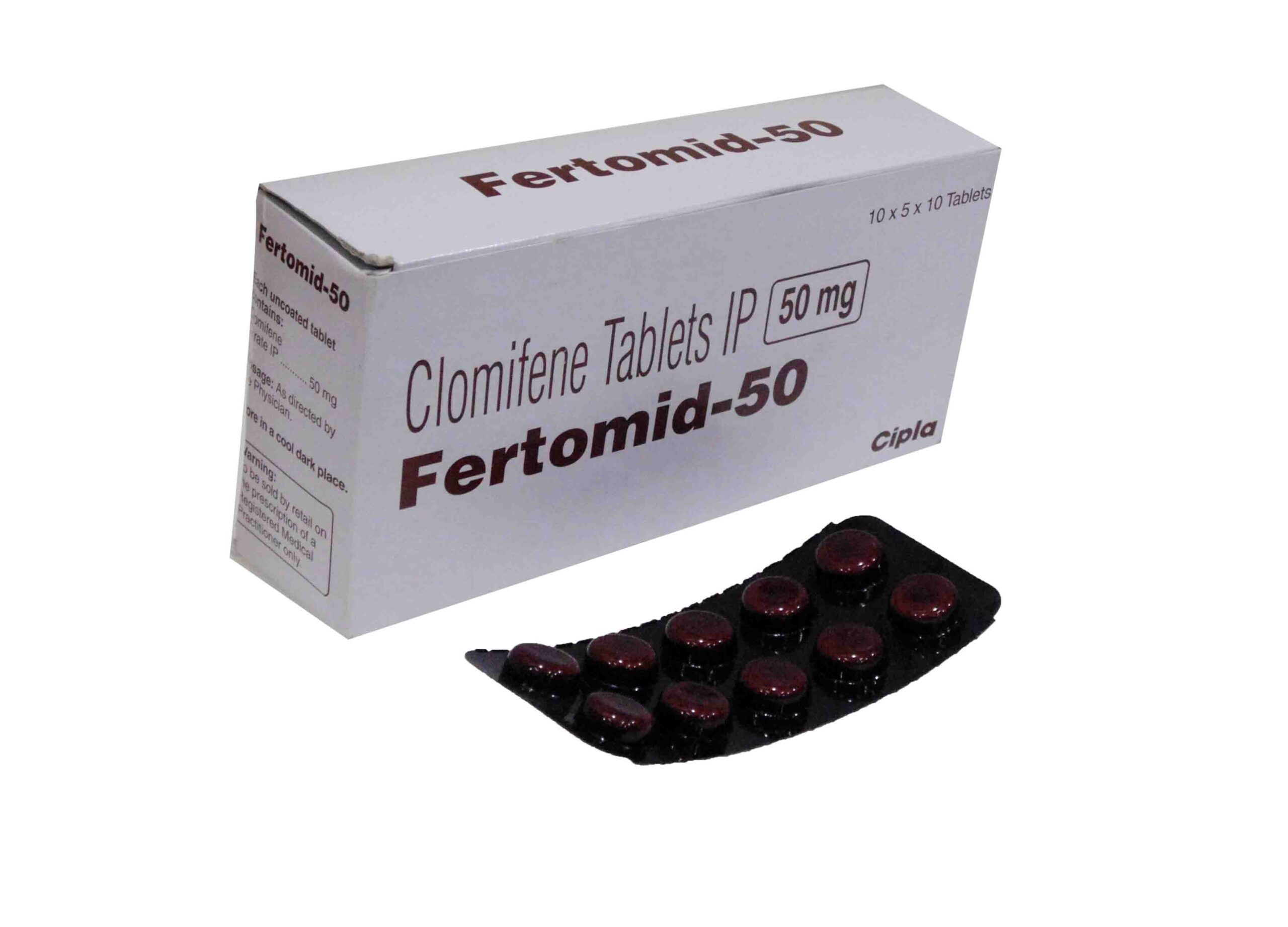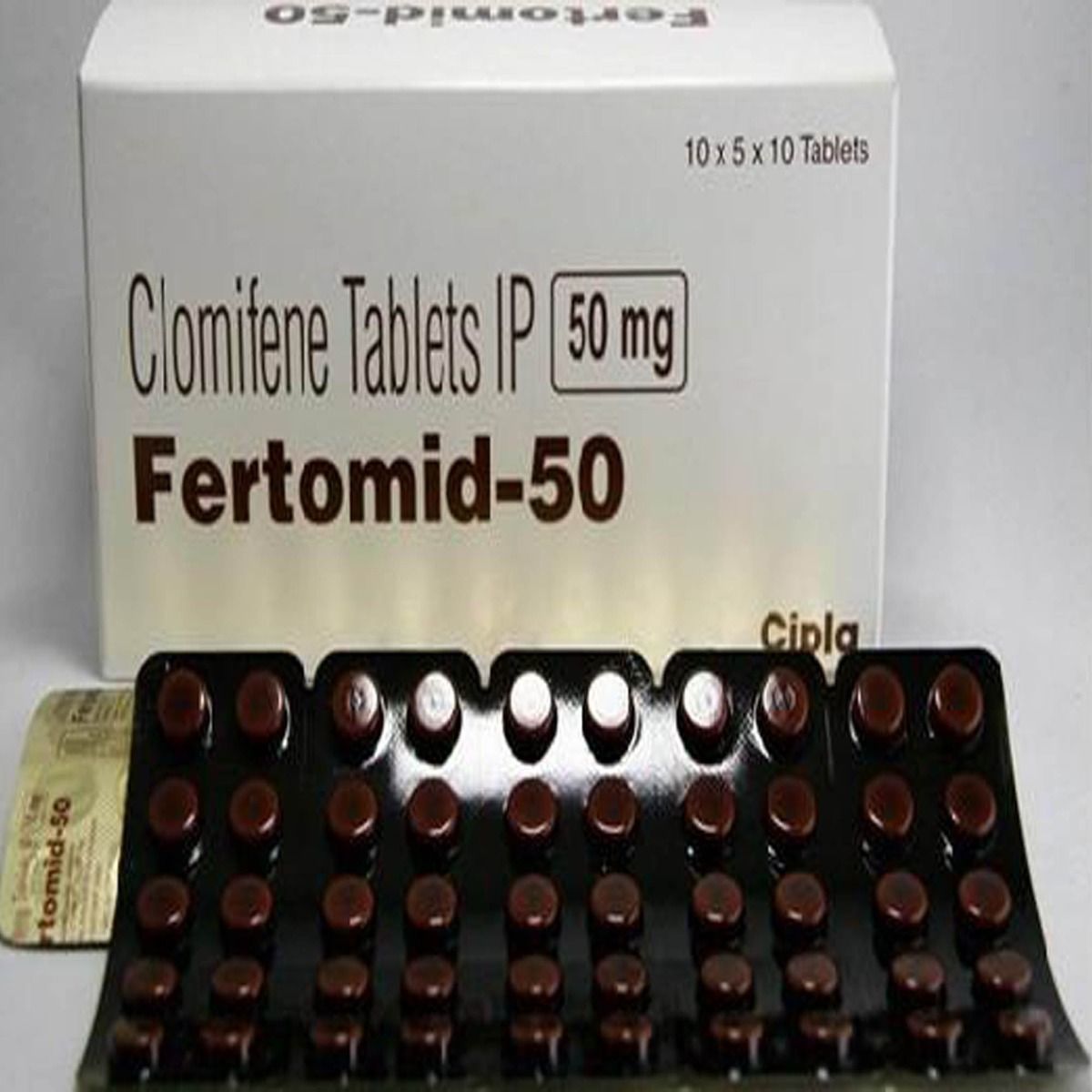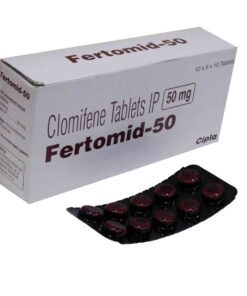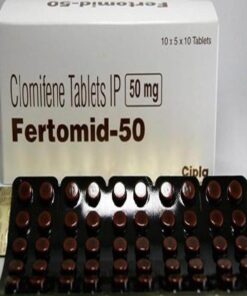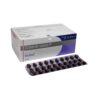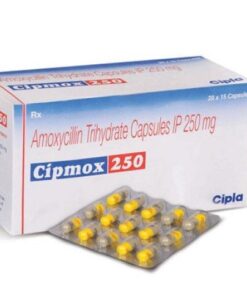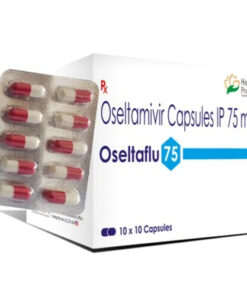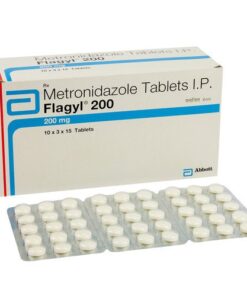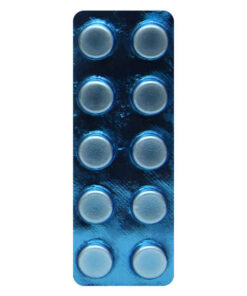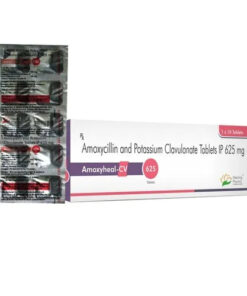Fertomid 50mg (Clomiphene Citrate)
$100.00 – $160.00
| Generic For | Clomid |
|---|---|
| Generic Name | Clomiphene Citrate |
| Manufacturer | Cipla Pharmaceuticals |
Clomiphene Citrate, commonly known as Clomid, is a medication used to treat infertility in women who do not ovulate. It is a type of nonsteroidal selective estrogen receptor modulator (SERM) that stimulates the release of hormones necessary for ovulation.
Here’s a detailed overview of Clomiphene Citrate:
- Mechanism of action: Clomiphene Citrate works by binding to estrogen receptors in the hypothalamus and pituitary glands, which tricks the body into thinking that estrogen levels are low. This stimulates the release of follicle-stimulating hormone (FSH) and luteinizing hormone (LH), which in turn stimulates the growth and release of mature eggs from the ovaries.
- Indications: Clomiphene Citrate is primarily used to treat infertility in women who do not ovulate due to hormonal imbalances. It is also used to induce ovulation in women undergoing assisted reproductive technologies, such as in vitro fertilization (IVF).
- Dosage and administration: Clomiphene Citrate is usually taken orally, starting on the 5th day of a woman’s menstrual cycle and continuing for 5 days. The initial dose is typically 50 mg per day, but it may be increased to 100 mg per day if ovulation does not occur. The maximum recommended duration of treatment is 6 cycles.
- Side effects: Common side effects of Clomiphene Citrate include: a. Abdominal discomfort b. Breast tenderness c. Headache d. Nausea e. Vomiting f. Hot flashes g. Mood swings
- Contraindications and precautions: Clomiphene Citrate should not be used in women with liver disease, ovarian cysts not due to polycystic ovary syndrome (PCOS), or an existing pregnancy. It should be used with caution in women with a history of mental health disorders, as it may exacerbate symptoms.
- Pregnancy and breastfeeding: Clomiphene Citrate should be used with caution during pregnancy, as it may have adverse effects on the developing fetus. It is not recommended for use while breastfeeding.
- Drug interactions: Clomiphene Citrate may interact with other medications, including certain antibiotics, antifungals, and anticonvulsants. It is essential to inform your healthcare provider about all medications you are taking before starting Clomiphene Citrate.
- Monitoring: Women taking Clomiphene Citrate should be closely monitored for signs of ovarian hyperstimulation syndrome (OHSS), which can be a life-threatening complication. This includes regular blood tests and ultrasound examinations to assess the growth of ovarian follicles.
In conclusion, Clomiphene Citrate is a medication used to treat infertility in women who do not ovulate. It works by stimulating the release of hormones necessary for ovulation. However, it is essential to be aware of the potential side effects, contraindications, and drug interactions before starting this medication. Close monitoring by a healthcare professional is crucial to ensure the safe and effective use of Clomiphene Citrate.
Fertomid 50mg Tablet is a medication that contains Clomiphene Citrate as its active ingredient. Here’s some additional information on Fertomid 50mg Tablet:
- Indications: Fertomid 50mg Tablet is used to treat infertility in women who do not ovulate due to hormonal imbalances. It is also used to induce ovulation in women undergoing assisted reproductive technologies, such as in vitro fertilization (IVF).
- Dosage and administration: Fertomid 50mg Tablet is usually taken orally, starting on the 5th day of a woman’s menstrual cycle and continuing for 5 days. The initial dose is typically 50mg, but it may be adjusted based on the patient’s response and medical history.
- Side effects: Fertomid 50mg Tablet may cause side effects in some women, such as abdominal pain, bloating, nausea, vomiting, breast tenderness, and headache. In rare cases, it may also cause ovarian hyperstimulation syndrome (OHSS), which can be a serious medical condition.
- Precautions and contraindications: Fertomid 50mg Tablet should be used with caution in women with thyroid disorders, liver disease, or a history of ovarian cysts. It is contraindicated in women with uterine or ovarian cancer, uncontrolled thyroid disease, or a known hypersensitivity to Clomiphene Citrate.
- Interactions: Fertomid 50mg Tablet may interact with other medications, such as anticoagulants, anticonvulsants, and certain antibiotics. It is important to inform your healthcare provider about all the medications you are taking before starting Fertomid 50mg Tablet.
Always consult with your healthcare provider before starting any new medication, including Fertomid 50mg Tablet, to ensure it is safe and appropriate for your specific medical needs.
SIDE EFFECTS:
Fertomid 50mg Tablet may cause several side effects in some women. Here’s a list of possible side effects:
- Abdominal pain or bloating
- Nausea and vomiting
- Breast tenderness
- Headache and dizziness
- Mood swings and irritability
- Hot flashes
- Blurred vision or visual disturbances
- Ovarian hyperstimulation syndrome (OHSS), a rare but potentially serious condition
It is essential to note that not all women will experience these side effects, and some may experience different side effects not listed here. If you experience any severe or persistent side effects while taking Fertomid 50mg Tablet, consult with your healthcare provider immediately.
BENEFITS:
Fertomid 50mg Tablet, containing Clomiphene Citrate, can provide several benefits for women experiencing infertility due to hormonal imbalances and anovulation. Here are some of the key benefits:
- Induction of ovulation: Fertomid 50mg Tablet stimulates the release of hormones that help regulate ovulation, increasing the chances of successful conception.
- Increased fertility: By promoting regular ovulation, Fertomid 50mg Tablet can improve fertility in women who previously had difficulty conceiving.
- Improved chances of pregnancy: When used in conjunction with assisted reproductive technologies, such as in vitro fertilization (IVF), Fertomid 50mg Tablet can increase the likelihood of successful pregnancies.
- Non-invasive treatment option: Fertomid 50mg Tablet is taken orally, which makes it a convenient and non-invasive treatment option for women with infertility.
- Cost-effective: Compared to other fertility treatments, such as hormone injections or IVF, Fertomid 50mg Tablet is generally more cost-effective and accessible for many women.
It is essential to note that the benefits of Fertomid 50mg Tablet may vary depending on the individual’s circumstances and medical history. Consult with your healthcare provider to determine if Fertomid 50mg Tablet is the right treatment option for you.
| PACK SIZE | 60 Pills, 90 pills, 120 pills |
|---|
Related products
Uncategorized
Uncategorized
Uncategorized
Uncategorized
Uncategorized
Uncategorized
Uncategorized
Uncategorized
